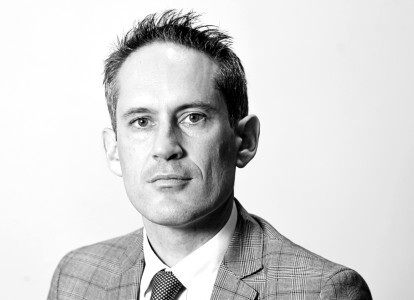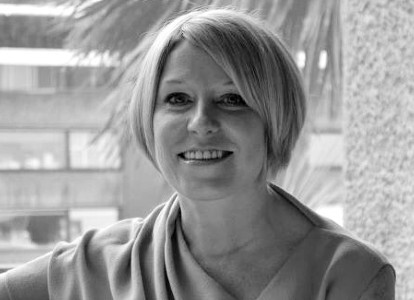
Christian Cubitt, Group Director of Communications at the Department for Environment, Food & Rural Affairs (DEFRA) has a distinguished career including working in No10 as the Deputy Spokesperson to the Prime Minister. Having held numerous high-profile roles, many in government communications, Christian offers us some fascinating insights into his career, emphasising the importance of continuous professional development and reveals the challenges and excitement of advising senior politicians. It’s not every day you get to watch the PM and US President flip burgers on the BBQ together!
1. Can you give us a brief overview of your career so far?
The bulk of my career has been spent in the Government Communications Service. I originally joined as a press officer in the Office of the Deputy Prime Minister in 2002. For the next 14 years I built a career doing media relations at the Ministry of Defence, Department for Work and Pensions, a spell as Press Secretary to the Cabinet Secretary for both Gus O’Donnell and Jeremy Heywood, two spells as Deputy Spokesman to the Prime Minister in No10, and two years as Head of News at the Ministry of Justice. I then left in 2016 to be Director of Communications for the NHS in NW London before joining the Royal Institution of Chartered Surveyors (RICS) as Director of Communications and Engagement in 2018. I was lured back into government in 2021 as Director of Communications at the Department for Levelling Up, before undertaking the same role at the Department for Transport in 2022. I then moved across to the Cabinet Office to oversee a project to overhaul the L&D programme for government communicators before coming to lead the communications team at the Department for the Environment (Defra) where I am now.
2. You have moved seamlessly around the heart of Government as a Director of Communications, working in the Cabinet Office, the department for Levelling Up, department for Transport and currently the department for the Environment, Food & Rural Affairs. How do you keep up with all the policies and issues and the communication priorities?
The key thing is always to remember that as a communications professional you’ve been brought in for your specialist skills, knowledge, experience and ability to lead a team – not because you are an expert in that particular department’s policy area. So irrespective of what stage you are at in your career its essential that you stay on top of your own professional development. The departmental briefs you can learn – though the learning curve is always steep!
3. Advising senior politicians – and even Prime Ministers – is very exciting for any communications professional. What’s your advice for advising such high-profile people?
It’s natural that the first time you go in to brief a senior or high-profile person you may get a bit of stage fright, so always remember that you’re in the room because you’re a skilled professional whose advice they want to hear. Always give your honest advice based on your professional judgement – even if that’s not what you think they want to hear. The best (and most successful) politicians I’ve worked with over the years were the ones who were open to challenge.
4. Which role in your career has been the most challenging and why?
If I had to pick one its probably working in No10 as the Deputy Spokesperson to the Prime Minister. A key part of that role was taking the daily lobby briefings when the Official Spokesperson wasn’t able to. That entailed setting out the PM’s day and the government’s business to a room full of political journalists and then taking questions, on the record, on absolutely anything! Its an incredible experience, you have the opportunity to really set the agenda and be clear on the PM’s position on the issues of the day, but also know that one wrong answer can create a rogue story that dominates the new cycle.
5. We know you are brilliant with stakeholders; please can you share your thoughts on how to manage stakeholders, such as politicians or journalists, well?
You have to be credible with your stakeholders, and they need to trust in the advice you are providing – especially when you are delivering some hard truths. To do that you have to understand what it is they want and why. Which in turn means the most important quality for a communications professional is the ability to listen. It doesn’t matter who the stakeholder is you have to listen so you can understand what it is they want. Then you start to see things through their eyes and understand how you can help them.
6. What is your most memorable work moment?
There is definitely never a dull moment wherever you work in government – and its certainly true that no two days are ever the same. That said, when I look back at my time in No10 there are two absolute stand out moments – the first when President Obama visited the UK and he and the PM flipped burgers on the BBQ in the no10 back garden, the second being a dawn flight on a chinook with the PM from Beirut to the Syrian border to visit a refugee camp on a visit to Lebanon at the height of the 2015 refugee crisis.
7. What’s the best piece of professional advice you’ve been given along the way and by whom?
Rather than a specific piece of professional advice I’d actually go with an approach. I’ve been very lucky to have worked with a number of brilliant communications professionals, both within the civil service and across the political spectrum, and all of them have had one thing in common – to use an American expression they don’t sweat the small stuff. The best out there are able to focus in on what really matters and not get derailed with the inconsequential. When you’re leading a team through difficult times and/or advising a principal its so important to stay focussed and not get lost in the weeds.
8. What or who inspires you, and why?
I’ll answer with a ‘what’ as that’s relatively easy – its working in the public interest to try and make the country a better place. One of the best things about working in the public sector is that every day you go to work to try and improve things.
9. Considering you have ‘a big job’, what do you do outside of work to de-stress?
Getting the record player out and putting on some jingly jangly guitar pop (The Stone Roses, Smiths, Jesus & Mary Chain etc) is definitely a great way to relax. I also love football and my three boys and I are regulars at Fratton Park to support Portsmouth and Wembley to watch England.
10. Do you have any hidden talents?
I’d love to say yes but I’m definitely a what you see is what you get type of person!
Thank you, Christian!
For a free download of our full Annual Salary Guide 2023, click here.
Time for a change? Check out our latest jobs!
The Works Search: a search consultancy specialising in PR and corporate communications. We have unrivalled matching abilities and are known for finding the top 5% performers in the industry - the ones who deliver and make your reputation great. For more advice or market insights, do get in touch with us on 0207 903 9291 or email: sarah@the-works.co.uk.


